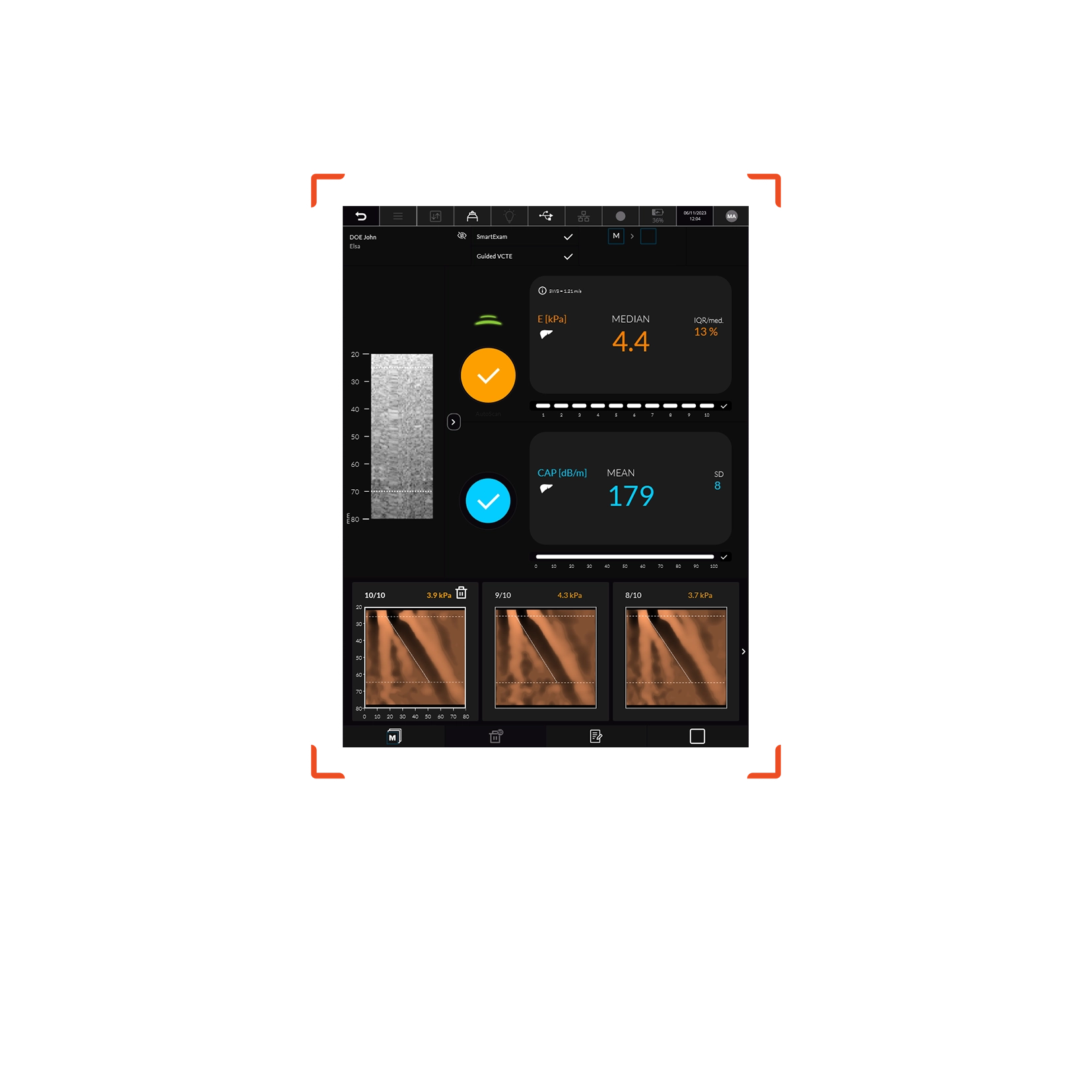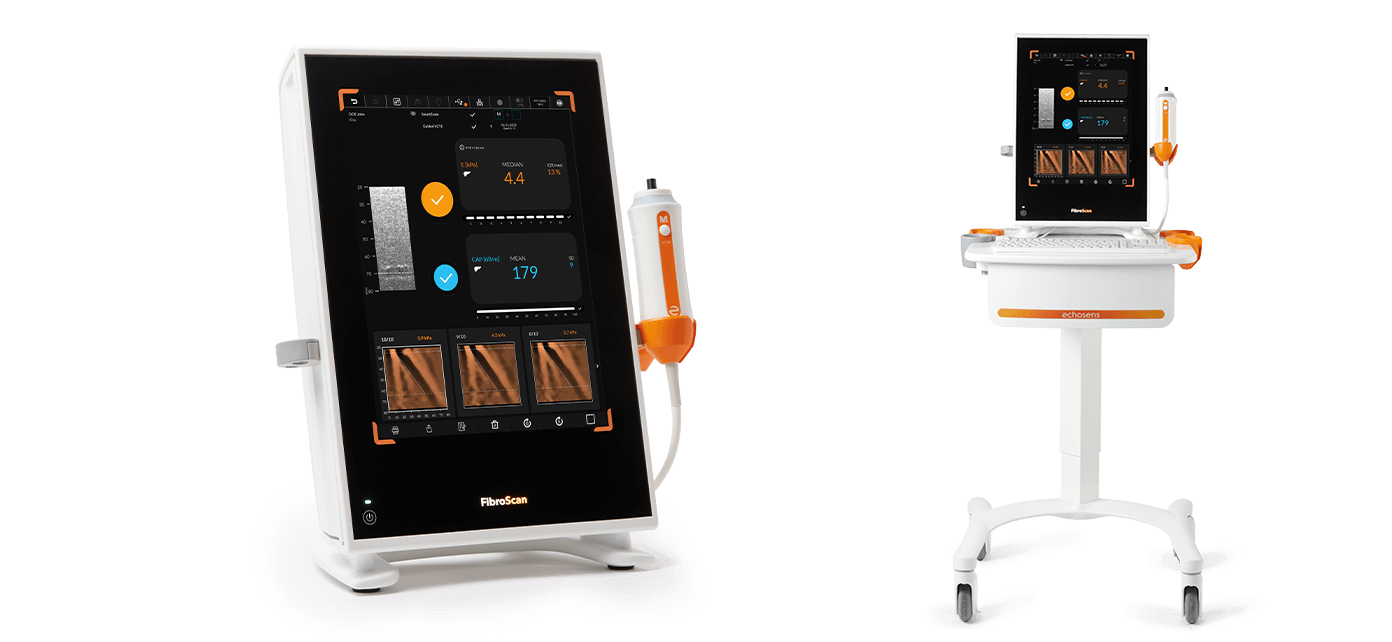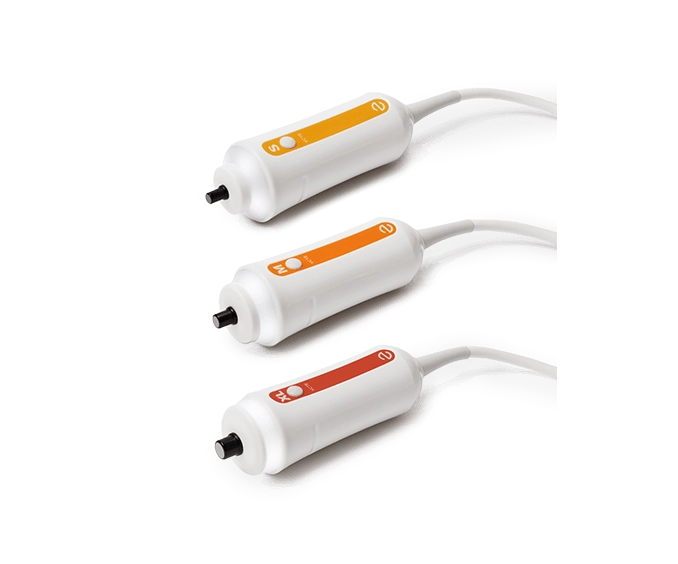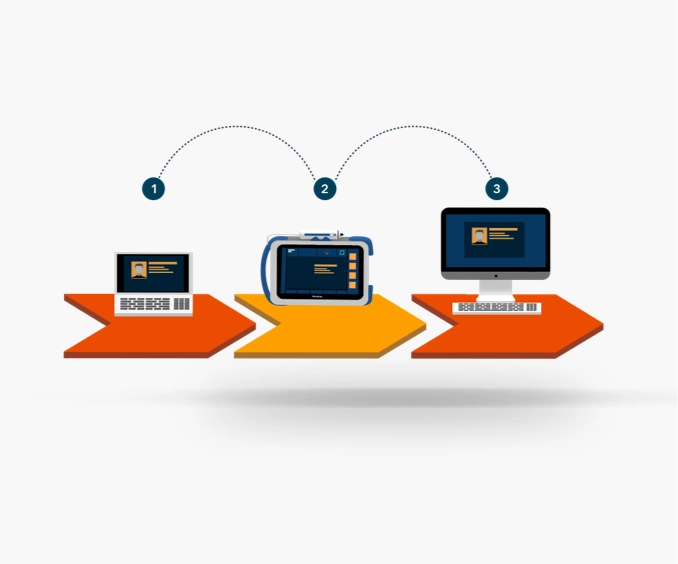
Guided VCTE™
Seamless liver health assessment for all
The portable non-invasive solution for efficient liver disease management.
Powered by LSM by VCTE™ and CAP™ for liver disease management.
Ideal point-of-care solution for private practice or office-based settings.


With its optional roll stand, 15” interactive touchscreen display and durable ergonomic design, FibroScan® Compact 530 is the perfect liver assessment solution for any point-of-care setting.
FibroScan® Compact 530 is easy to handle and transport (10 kg). It is a battery-powered device and is provided with transport case.
As an option, the dedicated roll stand provides a lockable drawer for probes, and a hard washable keyboard.
FibroScan® Compact 530 is adapted to all patient morphologies as it can be used with all probes S+, M+ and XL+. The two probe connectors allows to easily switch between probes during exam.

LSM by VCTE™ is unique, patented and validated for Liver Stiffness Measurement1. 4,778+ peer-reviewed publications support the use of LSM by VCTE™.
CAP™ is unique patented and validated for liver disease management.2,3 1,653+ international peer-reviewed publications support the use of CAP™.
From installation, to training and local support, we provide you with the highest quality of services.
1.European Association for Study of Liver, Asociacion Latinoamericana para el Estudio del Higado. EASL-ALEH Clinical Practice Guidelines: Non-invasive tests for evaluation of liver disease severity and prognosis. J Hepatol. 2015;63(1):237-264. doi:10.1016/j.jhep.2015.04.006.
2.Karlas T, Petroff D, Sasso M, et al. Individual patient data meta-analysis of controlled attenuation parameter (CAP) technology for assessing steatosis. J Hepatol. 2017;66(5):1022-1030. doi:10.1016/j.jhep.2016.12.022.
3.Recio E, Cifuentes C, Macías J, et al. Interobserver concordance in controlled attenuation parameter measurement, a novel tool or the assessment of hepatic steatosis on the basis of transient elastography. Eur J Gastroenterol Hepatol. 2013;25(8):905-911.doi:10.1097/MEG.0b013e32835f4c3d.
The FibroScan® Compact 530 is intended to measure liver stiffness (E) using Vibration Controlled Transient Elastography (VCTE™ ) at 50 Hz shear wave frequency and liver ultrasound attenuation coefficient (CAP™)* at 3.5 MHz. FibroScan liver stiffness measurements (LSM) by VCTE™ may aid the physician in determining the likelihood of cirrhosis and may be used, taken in context with other clinical and laboratory data, as an aid in the assessment of liver fibrosis. FibroScan CAP™ measurements may be used, taken in context with other clinical and laboratory data, as an aid in the assessment of hepatic steatosis. FibroScan® is indicated as a non-invasive aid to clinical management, diagnosis, and monitoring of adult and pediatric patients with confirmed or suspected liver disease, as part of an overall assessment of the liver. Results in the pediatric population should be interpreted while considering the clinical condition and the overall patient profile. The FibroScan® device is intended for use by healthcare professionals in hospitals, clinics or any facility where healthcare is provided. *CAP™ refers to ultrasound attenuation coefficient (originally defined as Controlled Attenuation Parameter). CAP™ on S+ probe is only available with SmartExam capability.

Seamless liver health assessment for all

Optimize measurement accuracy on all patients of varying size

Optimize clinical workflows with real-time secure data transmission

Cloud-based solution to assist clinicians in providing comprehensive liver care.